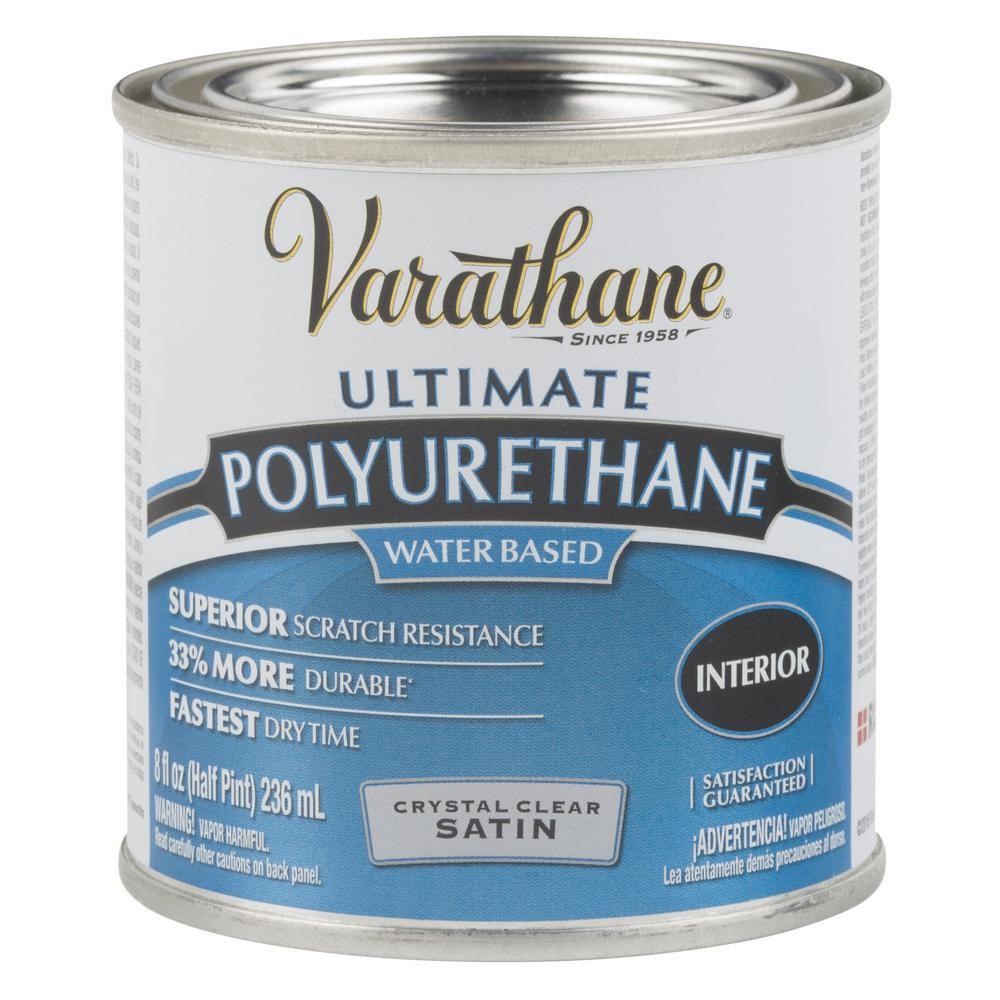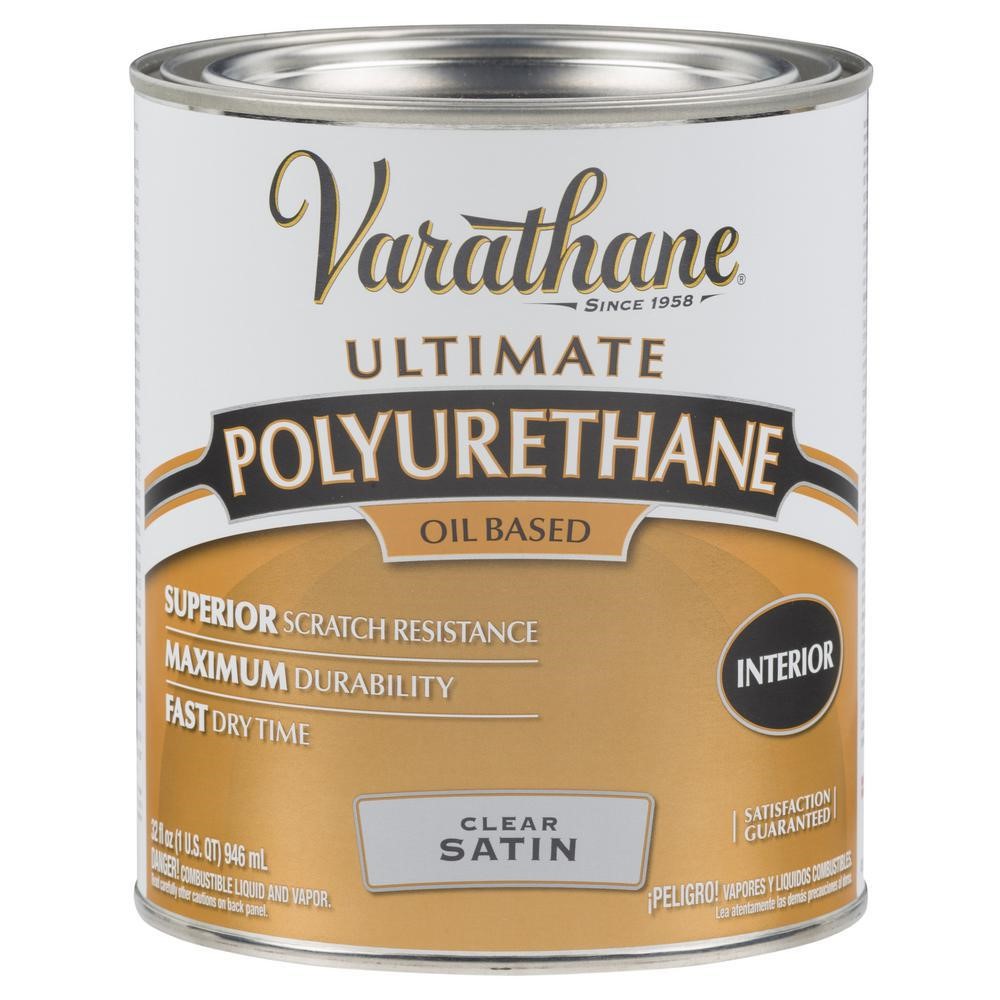Polyurethane - Water-Based

Water-based "polyurethane" is not alcohol-proof, even when fully cured. In other words, it is not a suitable finish for furniture, floors, counters, bars, or basically anything. And that's any kind of alcohol, including drinking alcohol. As far as I am concerned, that is no kind of finish at all - as bad as lacquer. I'll go forward with this debacle because that seems to be the easiest thing, but now I have an alternative if need be - I know what I can strip it off with.
Real polyurethane is impervious to just about anything it might reasonably encounter. Like a spilled martini.
Water-based "polyurethane" is nothing more than transparent acrylic house paint. Next time I'll use a roller, I don't see any point in spraying house paint. If there is a next time. Half the can is gone already, so it's not cheap either. And acrylic is a word that doesn't mean anything nowadays - the marketing guys put it on everything. But basically, this stuff is not that different from what you put on your walls. It is absolutely not polyurethane.
The advantages of WB-poly are that it dries fast and there are no fumes. Neither of those really matters in the long run. I have seen indications that this finish is neither chemically nor mechanically tough, and I have read the same.
Compared to oil-based, water-based poly is inferior in the following areas: wear, coverage, adhesion, UV resistance, heat resistance, chemical resistance, and cost. That's pretty much everything. Why would you use this junk at all, when the good stuff is right there on the shelf next to it, and cheaper?
On the plus side, no fumes, dries pretty fast, and sands well. A week after you've applied it, none of those things matter. What matters is the life of the instrument, and water-based garbage looks to be about as durable as nitro. Time will tell. It does not yellow, which is either good or bad.
As I've said before, nitro is a way to push product out the door fast, hence cheap. I think WBP is in the same class. Both amount to a con of the customer, who will probably blame himself for the accelerated deterioration, so you get away with it. I just build things for myself, I don't need to con anybody. But I don't fool myself when I do a bad job.
This is the second time I've had grossly inferior results with water-based poly. Add to that the poor long-term outlook, and there won't be a third time. I can brag about my salvage skills if this body doesn't end up in the trash. It's going to be a lot of extra work now. I'm pretty pissed off.
Until it is outright banned, oil-based polyurethane is the best finish for a guitar available to the general public. Pure-oil finishes offer no protection, nitrocellulose self-destructs, and workable UV-cure poly is not ready. That will be the future, but the future isn't yet.
WB-poly is only about 35% solids, which means you need a lot of it - a lot of coats and a lot of time to put them on. That also makes it very expensive, figure you need twice as much to get the same coverage as oil-based. Now I understand how I went through half a quart in one day. How does any of this make sense? No wonder the manufacturers won't touch the stuff. The more I researched it, the more I realized it's a just bad joke being played on everyone by the EPA.

Questions or Inquiries?
Just want to say Hello? Sign the .